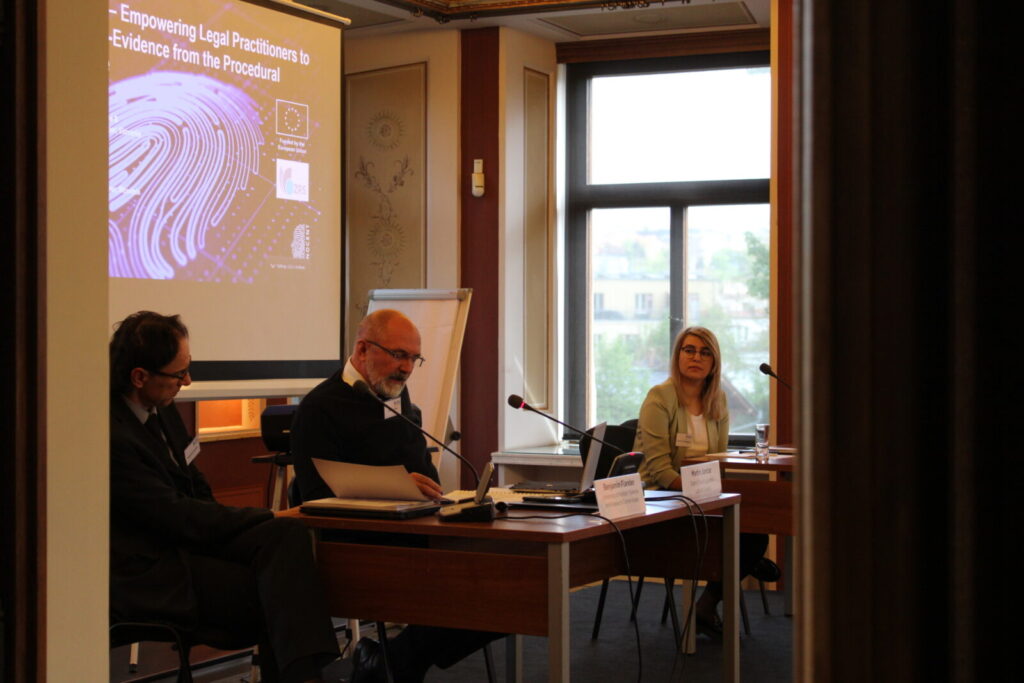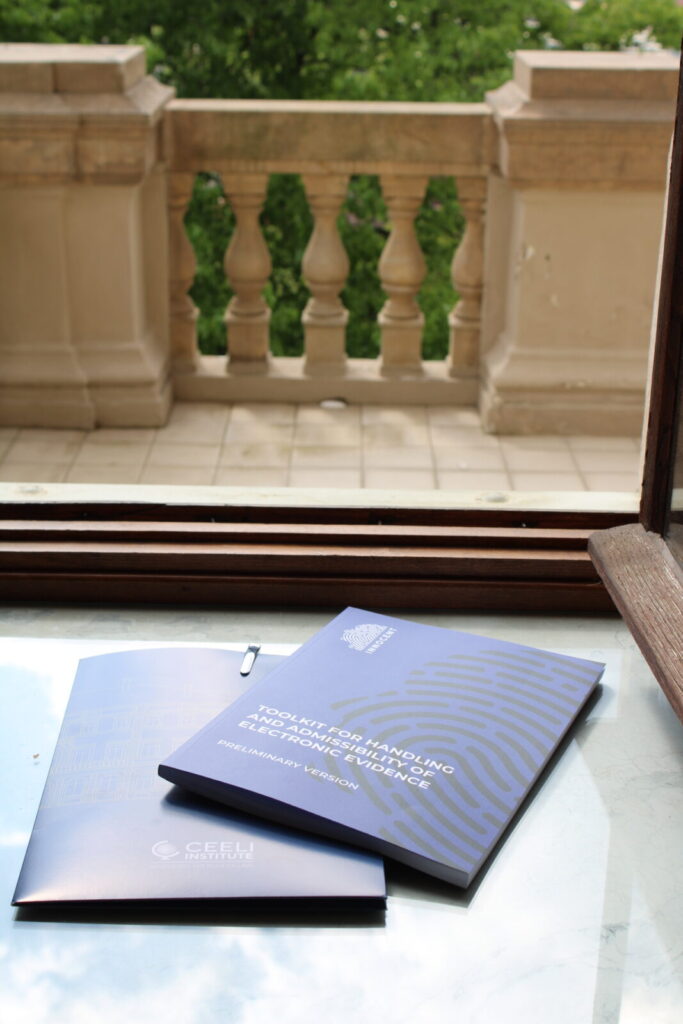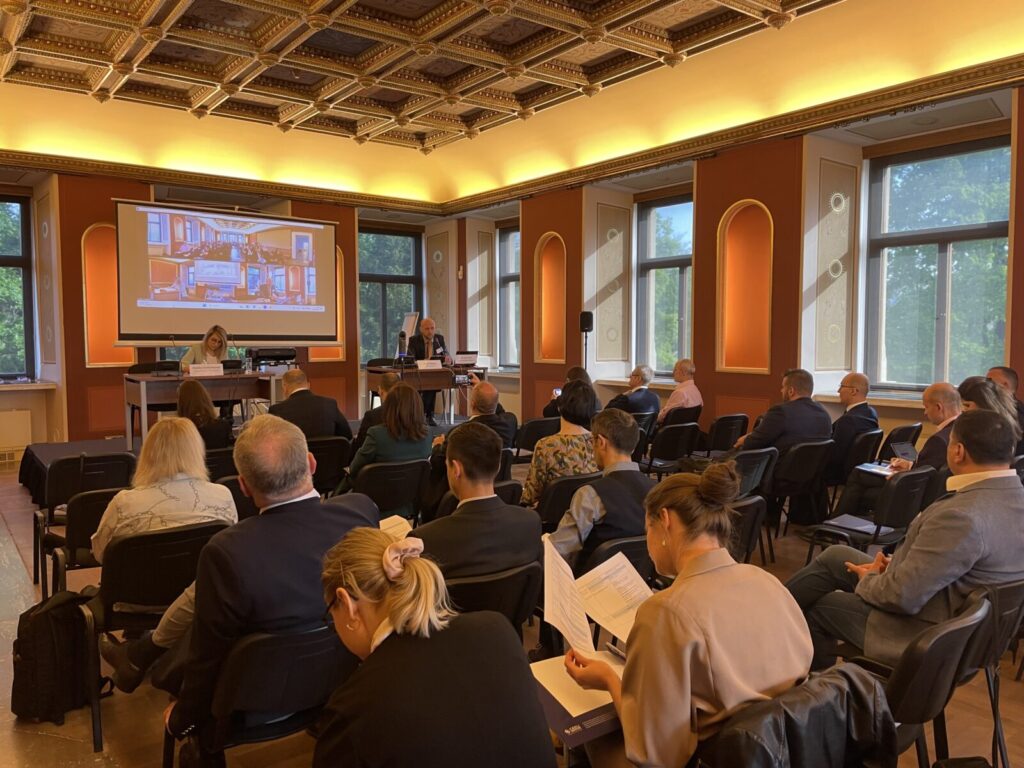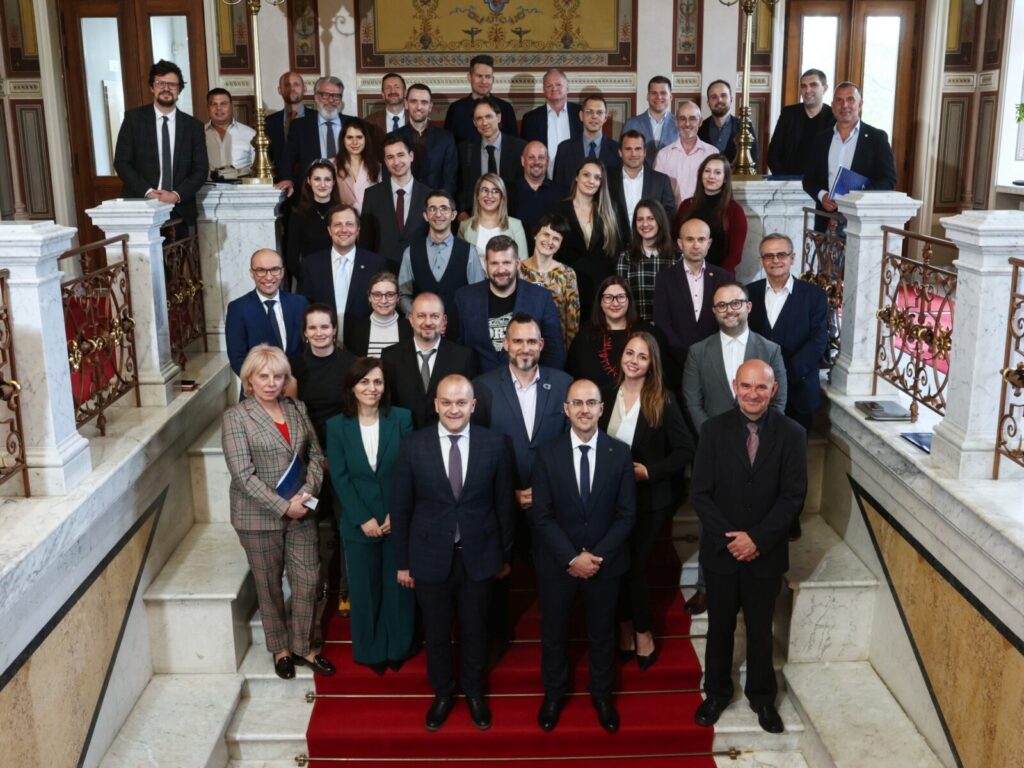


On 18 April 2024 in Prague,Czech Republic, representatives of the Law Institute of the Science and Research Centre ZRS Koper attended the final international conference within the framework of the international project INNOCENT – Improving the application of the presumption of INNOCENce when applying elecTronic evidence”(GA No. 101056685).
The event was attended by more than forty attendees, including judges and professional staff from the criminal divisions of courts, state prosecutors and lawyers. Presentations were given by experts from law faculties, the European Commission and the Council of Europe.
During the conference, experts addressed the latest developments and judicial practices in the field of EU legislation on electronic evidence and the presumption of innocence. Prof. Benjamin Flander, PhD, and Judge Martin Jančar, MSc, researchers from the project group at ZRS Koper, presented the Manual on the Use and Admissibility of Electronic Evidence (authored by Prof. Benjamin Flander, PhD, and Prof. Anže Erbežnik, PhD), which represents the most significant contribution to this international research project. The conference also touched on the relationship and use of artificial intelligence in criminal proceedings, concluding with a roundtable discussion on addressing cybercrime.
The manual includes an analysis of the international and EU legal framework related to electronic evidence and the fundamental constitutional and criminal law principles of the presumption of innocence and fair trial. Additionally, it presents and analyses the procedural framework for the handling and evaluation of electronic evidence in criminal proceedings. It provides examples of best practice and current issues related to the collection and storage of electronic evidence in criminal proceedings, judicial evaluation, and admissibility of electronic evidence, and, in this context, analyses cross-border evidence acquisition in the EU.
As part of the project, the manual will be published in electronic format. It is intended for judges, lawyers and prosecutors who are increasingly faced with dilemmas related to electronic evidence and the principle of presumption of innocence.

 en
en Slovenščina
Slovenščina Italiano
Italiano